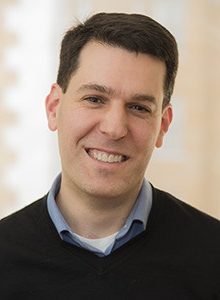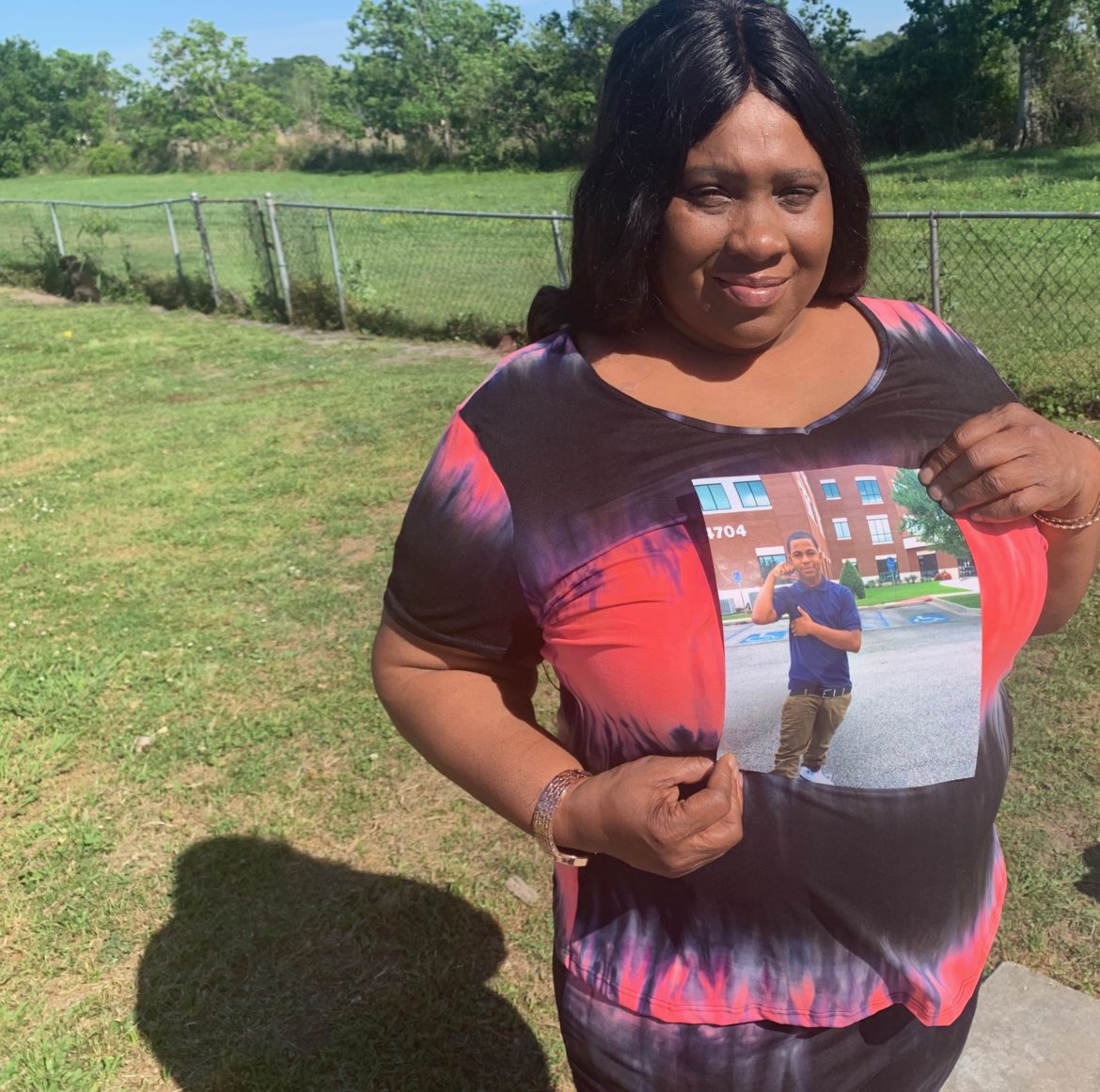CUT OFF, La. — Early Tuesday morning, Jennifer Jones, 47, picked up the phone and heard the voice of her 17-year-old son, Kirkland. He was calling from the Swanson Correctional Center for Youth, the juvenile facility in Columbia, La., that has been his home since March 4.
But his voice didn’t sound right. “He told us he was scared,” Jones said. She and his father, Kirk Chagois, 51, felt helpless as their son, his voice trembling, recounted how two young men from a nearby dorm had gotten sick and were sent to the hospital Monday night.
As of Thursday, nearly one-third of the positive COVID-19 cases reported by juvenile facilities were from Louisiana, according to Josh Rovner from the Sentencing Project, a research and advocacy center in Washington, D.C. Of the 19 cases, six are in Louisiana, with 13 others spread across six other states: Connecticut, Maryland, Missouri, New York, Texas and Washington state.
The cluster of cases has caused alarm among parents across the state. “I’m extremely worried,” said Errolyn Gillett, 42, from New Orleans. Her son, 16, was held in Bridge City until earlier this week, when a caseworker called to say he had been transferred to the main Swanson campus, in Monroe.
She now worries he (she didn't want to give his name) could be vulnerable to sickness because of his size. “He’s itty-bitty. He’s always been small for his age. I think he has a good immune system, but I don’t know. No one really knows how they’ll react to this corona.”
Lack of communication has fed her concerns, Gillett said: They usually talk weekly, but he hasn’t called for two weeks. “I feel like they might be keeping him on hush because they don’t want him to tell what’s going on,” she said.
On Tuesday, Kirkland Jones told his parents that he was surrounded by others but felt alone. Though COVID-19 test results were still pending for the two hospitalized young men, the facility began issuing masks and gloves that morning, he said. One of the young men who fell sick had worked in the facility’s kitchen, he said.
Then on Wednesday, he placed another early-morning call to tell his parents that a third feverish youth had been taken to the hospital. Could he get home, Kirkland asked. His parents told him they’d talked to a public defender who had filed a petition for his release; since most courts were closed, they didn’t yet know when a judge would rule on it.
Fear of spread through facilities
Janet Brown, a public defense attorney for Acadia/Vermilion and Lafayette parishes, had already filed a petition on Kirkland’s behalf, arguing that his underlying charge was two years old and that he was almost off parole anyway. The petition, filed Monday, was part of an effort by juvenile advocates and defense attorneys across the state to get low-risk detainees released. Now, Brown said, the releases felt even more urgent, given the recent reports of illness in facilities, even as the entire state braced against the virus, or as Brown described it, “the avalanche coming at us.”

Janet Brown
Though older people and those with underlying disabilities seem to fare the worst when struck by the virus, it’s becoming clear that even young healthy people can be hard hit. Recently, a 17-year-old high school student in New Orleans became one of the state’s youngest victims.
“To keep him in a place where he can’t socially distance himself could be a death sentence,” Brown said.
Since mid-March, Jones and Chagois have talked extensively with their son about the nation’s pandemic. To know how worried they’ve been takes no more than a look at their phone bill, which includes $125 worth of phone calls from Swanson.
So they’ve talked about how the virus spreads rapidly through nursing homes and other congregate facilities. Epidemiologists believe it could spread unchecked in correctional facilities like Swanson. At any given time in Louisiana Swanson and three other facilities hold 200 to 300 youth sentenced by the state’s juvenile court judges.
A spokeswoman from the state’s Office of Juvenile Justice (OJJ) emailed a general link but did not respond to specific questions about the hospitalized youth from Swanson’s Columbia facility.
Observers say the administrative office seems to be in tumult: A week ago, its top official, James Bueche, resigned and was replaced by Edward “Dusty” Bickham, a 17-year veteran of the state Department of Corrections. That department oversaw all state facilities until juvenile facilities were carved out of the adult system in 2003.
OJJ first acknowledged through press releases last week that three incarcerated youth had tested positive for COVID-19, two at Bridge City Center for Youth near New Orleans and one at a group home in Baton Rouge. On Tuesday, updated data noted that the number of infections had risen to six youth at Bridge City along with three staff members, two at Bridge City and one at Swanson’s Columbia campus.
A total of 26 adults working in juvenile facilities in 10 states have tested positive, with one fatality: Kenneth Moore, an officer from a Washington, D.C. facility located in Maryland, who died Wednesday, according to the Sentencing Project.

Louisiana House of Representatives
State Rep. Daryl Deshotel
State Rep. Daryl Deshotel, a Republican, said on Wednesday that he’d spoken to Bickham and asked the office to create a list of juveniles who could be released without a risk to public safety. “We need to have this list to bring to judges, so that they can order releases,” Deshotel said.
Though advocates have asked for infected youth to be released to the care of their families, Deshotel said none of the cases were particularly serious and so the youth who tested positive at Bridge City were being quarantined and cared for within the facility.

Joshua Rovner
Rovner was critical of Louisiana’s decision to keep infected youth within its facilities. “Places like Bridge City are almost designed to accelerate the spread of the virus,” he said, noting that, because of rapid community spread, it’s unavoidable that Bridge City workers will both carry the virus home and bring it from their communities to the facility from their communities.
On Monday, during a regular check-in call from the Swanson facility, Jones and Chagois asked staffers about precautions taken by the facility. They said they were told that Kirkland and other detained youth were being provided with soap and hand sanitizer.
But correctional facilities like Swanson, which has a capacity of 48 youth, were built to hold youth in such close quarters it’s impossible for all of them to stay six feet away from each other. “They’re not doing social distancing,” Jones said. “They can’t.”
Deshotel said that he believes in the public’s right to know about any infections that could affect incarcerated juveniles and correctional staff. So, in response to his request, the OJJ website on Wednesday evening began publishing a breakout of the youth and staff who have been tested and tested positive at each facility.
Advocates pushing for release of nonviolent youth
Across the nation, roughly 43,000 juveniles are being held in juvenile secure-care facilities and in local detention centers, which hold juveniles until trial. A few weeks ago, as the number of coronavirus cases exploded nationally, advocates for juveniles pushed state and local authorities to ramp up facility hygiene, provide free phone calls for frightened youth and release as many juveniles as possible, especially those facing nonviolent charges.
About three-quarters of youth are sentenced to secure care for nonviolent offenses in the U.S. It’s a statistic that has stayed consistent, even as overall populations of confined juveniles have dropped by 60% nationally over the past 20 years.
Advocates see teens like Kirkland Jones as prime candidates for release. The joyriding arrest that had landed him in Swanson dates back to late 2018, in Lafayette. He was 15. He had thought the car was owned by the relative of the driver, another teen, he’d said then.
Kirkland was a repeat offender in juvenile court, mostly because he got into fights and grabbed things from parked cars that he found unlocked when he pulled on door handles. As is typical for teen offenders, he was usually arrested in a group. “He’s a follower,” Brown said. “If other kids say, ‘C’mon, Kirkland,’ he’s gonna go with them.”
A fresh start
After his joyriding arrest, his father talked to him about taking responsibility for what he’d done. So Kirkland pleaded guilty to unauthorized use of a motor vehicle and was sentenced first to a boot camp, then a group home called Christian Acres, then a regional secure-care lockup, the Acadiana Center for Youth, where he did well and earned early release in July.
Once he was out on parole, his parents were determined to give him a fresh start, away from the crowd he’d socialized with in Lafayette. So they moved two hours closer to the coast, to Cut Off, not far from the Gulf of Mexico, where Chagois works as a deckhand and a cook on ships and offshore rigs.
Where Lafayette is the fourth-biggest city in the state, Cut-Off is a sleepy little rural town, population 5,976. In Lafayette, he’d attended predominantly African American schools alongside many cousins and lifelong friends. At South Lafourche High School, he knew no one. His classmates were mostly white. He started to make friends, but he found the adjustment difficult, his parents said.
A few months into his sophomore year, his mother withdrew him and started homeschooling him. She felt better, helping him one-on-one with academics where he had fallen behind. Both parents say that they saw him maturing under their close watch.
But somewhere along the way, they got the impression that Kirkland had been shifted to unsupervised parole. As he wasn’t doing anything wrong, there was no need to check in, they said.
In early March, they received a certified letter from the court in Lafayette ordering them to report to a nearby probation office. When they arrived, Kirkland was taken into custody. On March 4, he appeared in court in Lafayette where a judge revoked his probation until July 31, the end of his parole term.
The judge said Kirkland had missed a court date and the probation officer said he hadn’t checked in for three months. Chagois wondered why no one had called or visited their house. But he also felt personally responsible. “He doesn’t drive, it was our responsibility to bring him,” he said.
Kirkland was sentenced to the Swanson facility at Columbia. Though it’s a five-hour drive from Cut Off, his parents would hop into their car at a moment’s notice if they knew they could bring him home. “Because right now, he’s frightened and scared. Us too,” his father said.
This story has been updated.
